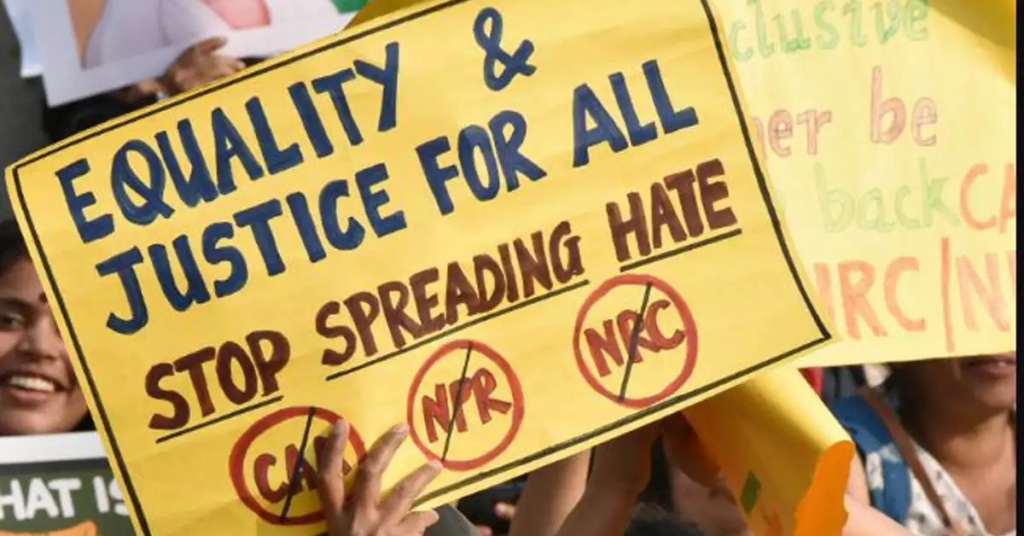The burgeoning nationwide movement to resist the Citizenship Amendment Act (CAA), National Register of Citizens (NRC) and National Population Register (NPR) has helped start dinner table conversations about citizenship and nationhood in many a household. There is tremendous curiosity and persistent confusion given a possibly deliberate attempt by the regime to obfuscate the truth. CJP recently held a workshop and meeting in Mumbai with the objective of empowering people with correct information.
The meeting, headed by CJP secretary Teesta Setalvad, also included former IAS officer Kanan Gopinathan and Sasikumar Senthil. It was followed by a workshop organised by CJP India and was attended by activist groups and lawyers to plan out specific on the ground local actions that needed to be taken to counter the state-level implementation of NPR-NRC.
Citizenship has been defined as the right to have rights. Over the past six years, there have been clear political moves to fundamentally assault and redefine this Constitutional basis of both Indian nationhood and citizenship. Especially now, with the Citizenship Amendment Act, 2019 being passed and a not thoroughly debated all India-level NPR-National Register of Citizens (NRC) process. CJP is urging people to understand, organise and fight back democratically. Let’s stand up for the Constitution of India. We must unequivocally reject CAA 2019 and at the same time in the same breath, NPR/NRC. For this we need your support.
Kanan Gopinathan spoke about the CAA being inherently unconstitutional in the manner in which it targets a particular community. He also felt that when seen in combination with NPR-NRC, it becomes even more dangerous, particularly for the poor, Adivasis and Dalits, who will not be able to procure the necessary documents needed to prove their citizenship. Citing the example of the hurried NRC exercise in Assam and the large number of people excluded from the final NRC process, he felt that it was a massive injustice to all the communities, including Hindus. “We should appeal to the government to repeal the act immediately as it affects every citizen in the country,” he said. Commenting on the nation-wide student protests against NPR-NRC-CAA, he said, “The younger generation are standing on the right side of the Constitution. They are showing the way ahead for peaceful resistance against an oppressive regime.” 
Sasikumar Senthil talked about the deliberate confusion created by the government by conflating Census with NPR. He said that NPR, far from being a mere record of the national population , is the first step towards implementing a nation wide NRC. He also expressed concern about the unchallenged power the local officials in villages would have while conducting the “bureaucratic table-top process” of NPR in India.
Summing up the current mood of the nation, CJP secretary Teesta Setalvad spoke about the growing trust deficit between the citizen and the government. Calling for a more strategised resistance, she highlighted the importance of raising awareness among localities and wards to appeal to their respective corporations against carrying out NPR in their state.
The workshop organised by CJP was focused on finding specific strategies and action points to create widespread awareness about the dangers of NPR-NRC and counter it on a local level. Kanan Gopinathan spoke about the need to create awareness and mobilise people to fight together against NPR-NRC-CAA. “Citizens who feel that their lives won’t be directly affected by the law, should also raise their voice against the politics of hatred,” Kanan Gopinathanan said, emphasizing the need to mobilise citizens in the fight against NPR-NRC-CAA. Sasikumar Senthil asked for the need to eventually move from mobilisation to other modes of large-scale non-violent resistance, such as boycotting and fasting, to create counter narratives of dissent against the propaganda machine of the government. The workshop, moderated by CJP secretary Teesta Setalvad, concluded with specific action points to hold off the data collection process for NPR, set to begin in Maharashtra from 1st May, 2020.
(Feature Image – Times of India)

